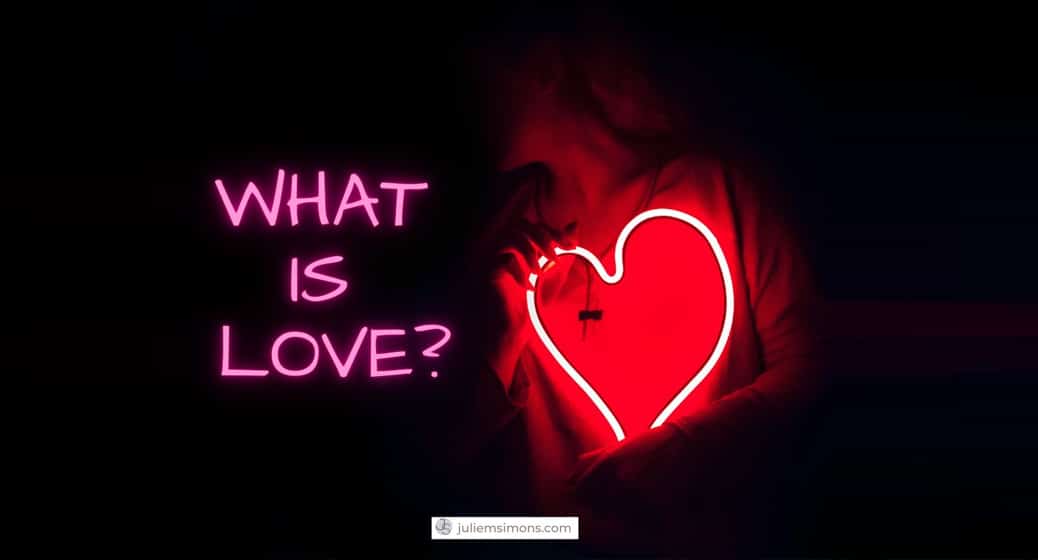Before we get into the business of love, let’s start with the distinction between love and attachment.
Just because we are attached to someone doesn’t mean we love them. In fact, I’ve had many clients over the years who have come to me in severe distress regarding their attachment to a person they don’t even like, much less love.
The drive to attach to other humans is a powerful instinctive behavior that’s part of the biological programming of our species (Green 1994). Mammals have a parallel brain structure with humans and, as such, have the same biological instinct for attachment because it promotes survival (Konrad Lorenz and Harry Harlow 1952).
Love, on the other hand, is an emotion.
The foundation of my training and approach is that emotions are feelings experienced as vibrations in our body created by thoughts in our brain. Thoughts are something unique to the human brain as a result of the added feature of having a Pre-Frontal Cortex.
So, if love is an emotion and emotions are caused by our thoughts, then love is caused by our thoughts.
What the What?!
This may seem a strange thing to consider, but I hope you’ll stay with me, even if just to tease your brain with some Valentine’s fun.
If you’re anything like me, you were taught that love is something you give to others and get from others. But if that were the case, other people would always feel our love when we give it, and we would always feel their love when they give it to us. Except that we don’t. Have you ever loved someone who didn’t love you back? Have you ever had someone reveal their love for you, only to leave you feeling awkward or even repulsed? How can this be? If we were able to actually implant our love into others, they would always feel our love inside of them when we gave it to them. Alternately, if they had the power to inject their love into us, then we would always feel the feeling of love whenever someone gave us their love. But this isn’t how it works.
I invite you to consider that love is a feeling we create with our minds. Take a moment right now to think of someone you love and to bring this thought into your mind, ”I love him/her.” Notice what you feel in your body when you think this thought. It feels good, doesn’t it? Now, the object of your love has not suddenly stopped in his or her tracks and suddenly felt our love. They are just going about their day. For all we know, they could be doing something we’d even consider “unloving” at this very moment. Yet we still feel the love we’re feeling because their actions don’t give or take away our love. This is because our love is coming from us, not them, and it directly affects us, not them. In order for your loved one to feel love, they have to think thoughts that create love in themselves. So ultimately, we are the only one who feels the love that’s generated by our loving thoughts.
Now you may be thinking, “but when the object of my love tells me they love me or does something I consider loving, I feel love.” For sure, it does seem that way, but it’s actually a cognitive illusion. What’s really happening is that the other person is offering you the option to create loving feelings in yourself by thinking loving thoughts.
Understanding this can be very empowering because then we don’t believe we need someone to say or do certain things in order to feel love. When we no longer think other people control our love. We get to decide to feel love on purpose as a gift to ourselves whenever we want, no matter what anyone else does or doesn’t do. It can also be a relief to know that withholding love doesn’t actually work to punish people or to get them to do what we want them to do. When we withhold love, the other person isn’t the one who feels the pain. We are the ones who feel the pain of withholding love because we are the ones withholding lit from ourselves. Knowing this can free us from believing we are at the mercy of others’ actions and give us more choice in loving others and ourselves.
Keep Reading
Want more? Here are some other blog posts you might be interested in.







